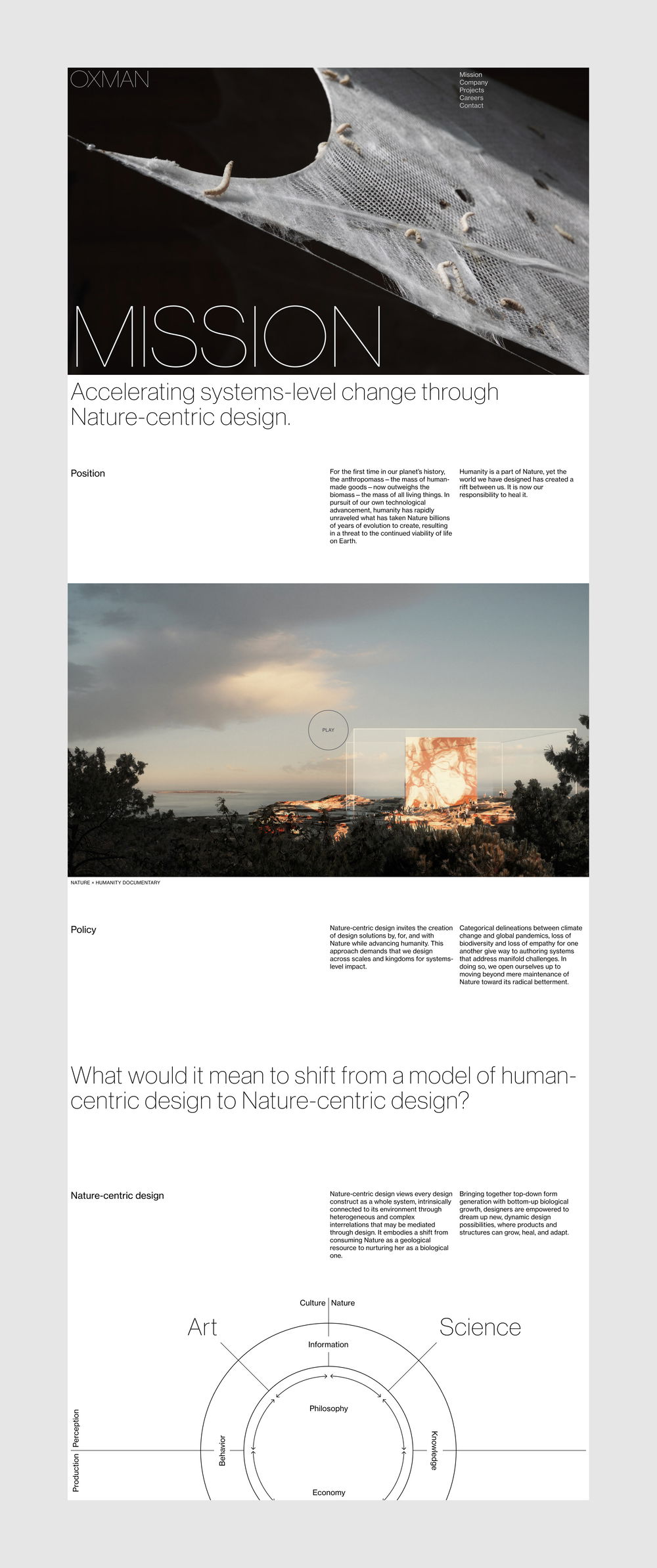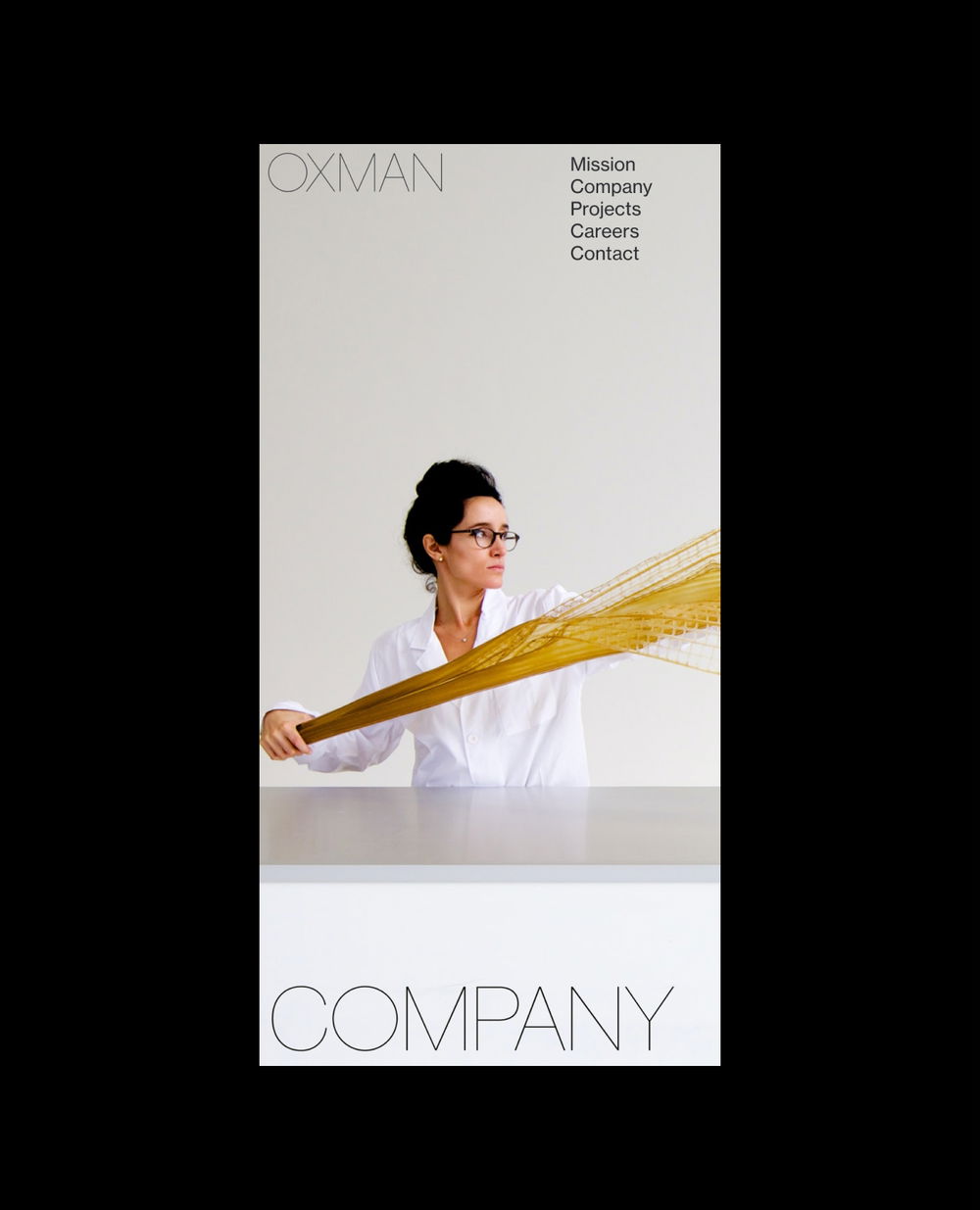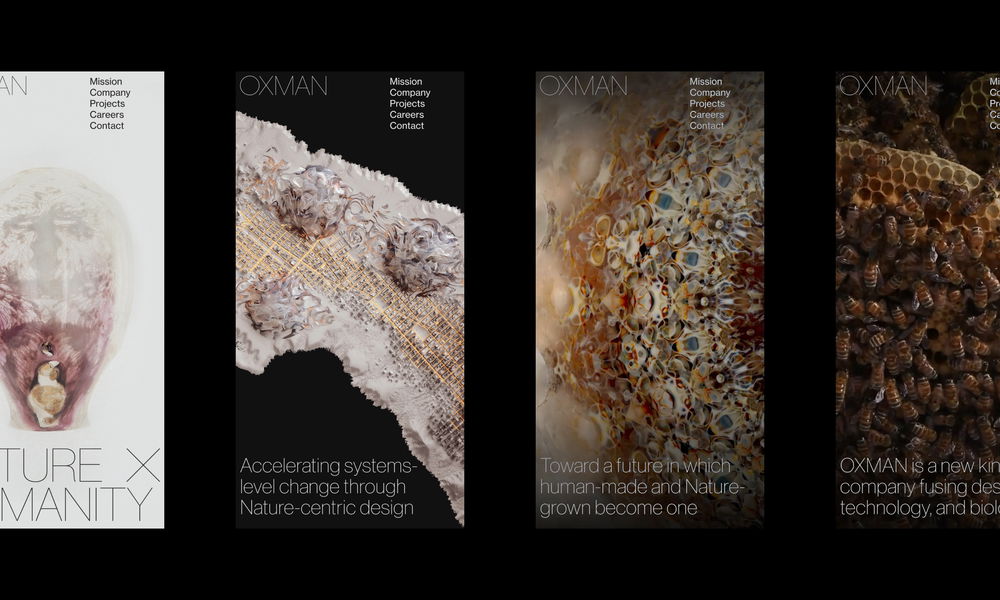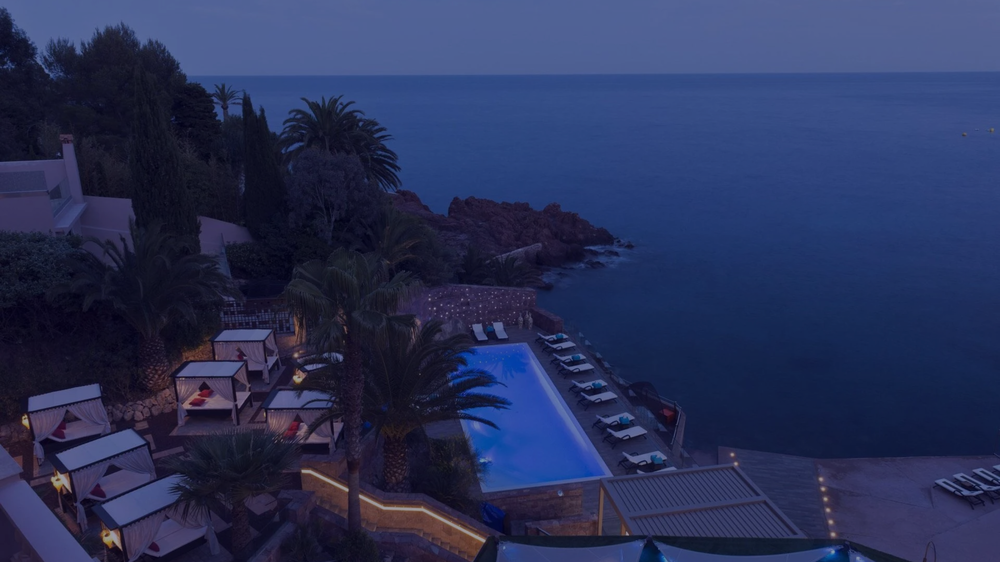 OXMAN
OXMAN
OXMAN
2022–2024
System-level change through nature-centric design
From architectural structures made by silkworms to mapping out a generative biomass in the heart of Manhattan, Neri Oxman—visionary scientist, artist, and entrepreneur—is at the forefront of next-generation design and production, informed by a field of study she calls material ecology.
In 2020, Neri and her team left the Massachusetts Institute of Technology (MIT) Media Lab to found a new design company, catapulting her research into the world beyond academia. Coinciding with its launch, AREA 17 collaborated with OXMAN to create a brand and website that would reflect the company’s mission: to be a catalyst for change in how we design and who we design for.
OXMAN’s approach challenges industries to move away from environmentally destructive and user-centered design systems and to consider an ever-vital question: in a world beset by ecological crises, how can we design in ways that improve life not just for us, but for the planet and other species? In other words, what could nature-centric design look like?
OXMAN is made with Twill, our open-source CMS for Laravel.



- Brand
- Business and brand insights
- Brand strategy
- Brand toolkits and rollout
- Experience
- Research and analysis
- Experience vision and strategy
- Experience design
- Design systems
- Technology
- Technology strategy and architecture
- Custom application development
- Custom interface development


